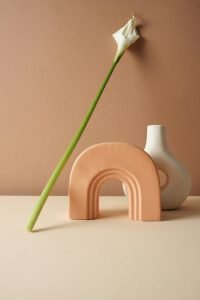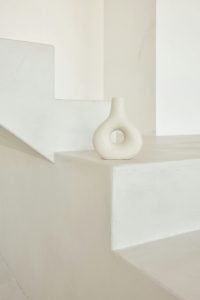When the word minimalism is mentioned, some of us imagine someone living on barely enough, not wearing the trendiest of clothes, not owning their own home, or using a car for transportation. Images of people with bare living quarters who travel the world come to mind. This is mainly because that’s what the media has taught us. This is what they would want people to believe the minimalist lifestyle is, hence making it unattractive.
 It makes sense that the media would go this route of making the minimalist life less than attractive. This is due to the consumerist world we live in. Anything that does not promote excess purchases or hoarding is not good for business. If then this is not what minimalism is, what is it? Minimalism can be seen as a tool one can use to live a more intentional, free, and meaningful life through the shedding of unnecessary excess. At Lake Forest Christian Counseling, we explore how embracing simplicity can lead to greater peace, purpose, and fulfillment.
It makes sense that the media would go this route of making the minimalist life less than attractive. This is due to the consumerist world we live in. Anything that does not promote excess purchases or hoarding is not good for business. If then this is not what minimalism is, what is it? Minimalism can be seen as a tool one can use to live a more intentional, free, and meaningful life through the shedding of unnecessary excess. At Lake Forest Christian Counseling, we explore how embracing simplicity can lead to greater peace, purpose, and fulfillment.
We live in a world of excess. Somehow, we have been convinced that owning more equals happiness and fulfillment. Minimalism challenges that view and tries to help people see that they need less in life to feel more fulfilled and content.
Only when you appreciate what you already have will you stop the need to accumulate more. By removing excess in one’s world, whatever that excess might be, one is forced to make a conscious inventory of their life and keep those things they truly need and not be distracted by those they don’t.
What are the benefits of minimalism?
Starting to live a minimalist life is counter cultural. It is not how we are brought up to live, either in our families or communities. However, those who have successfully adopted the minimalist life report to have found the following benefits:
- Freedom from duplicity.
- A stress-free life as one lives within their means.
- Creating time to “smell the roses” so to speak.
- Improved connections and relationships
- Financial freedom.
- Drawing one’s attention to the more important aspects of life like health and wellness.
- Changes in one’s mindset leading to personal improvement.
- Cultivating a character of gratitude and contentment.
- Focus more on giving, creating, and sharing rather than consuming.
- Helps in developing a healthy sense of identity; one which is not determined by external possessions.
- Fosters intentional living; is purpose-driven and clear.
- Minimalist lifestyles foster sustainable living. Fewer purchases mean people produce less waste, reducing environmental impact.
Myths about minimalism
Just like most movements, there will always be misconceptions and myths surrounding minimalism. Below are some myths about it that we wish to debunk and give accurate information on so people can make informed decisions:
It is for the rich
 It has been sold as something only for those who are wealthy. This is untrue. Those with limited financial resources can benefit greatly from learning to declutter and only spend on those things they need.
It has been sold as something only for those who are wealthy. This is untrue. Those with limited financial resources can benefit greatly from learning to declutter and only spend on those things they need.
It’s about sacrificial living
Yes, there will be sacrifices made, but the point of minimalist living is not deprivation of any kind. On the contrary, it aims for people to declutter so they can acquire more of what they truly need.
Deprives people of creativity
Minimalism has been pushed by media as being a life of bare open white undecorated spaces. That is not true. Again, it’s not about deprivation. You can be minimalist and still decorate your home with bright and beautiful accents that represent your personality. It is all about what contributes to your well-being.
Reach out for more information
If this article has made you curious about the minimalistic way of living and you would like to explore more, please reach out to us at Lake Forest Christian Counseling. We can connect you with a counselor or therapist who can help guide you and help you understand how to begin.
“Flower and Vase”, Courtesy of Andrej Lišakov, Unsplash.com, CC0 License;”Vase”, Courtesy of Andrej Lišakov, Unsplash.com, Unsplash+ License


